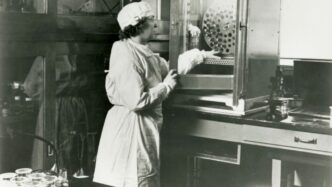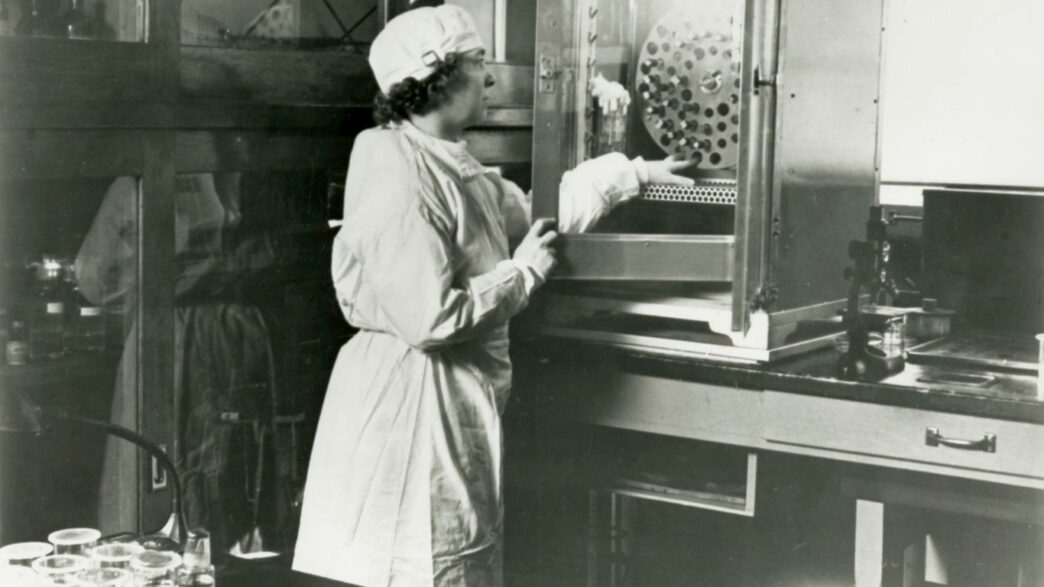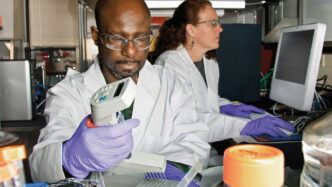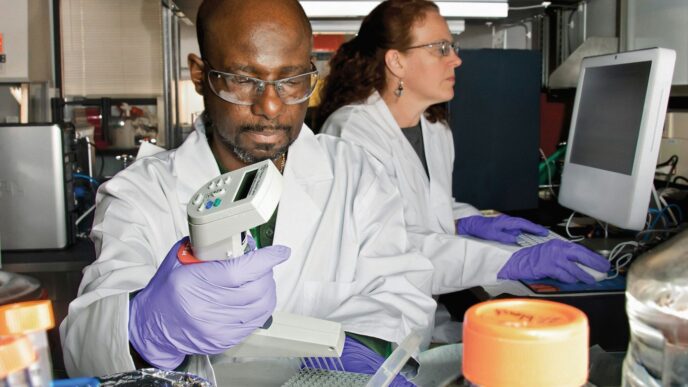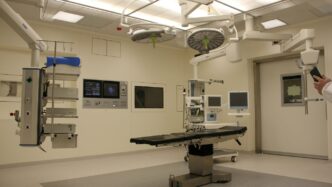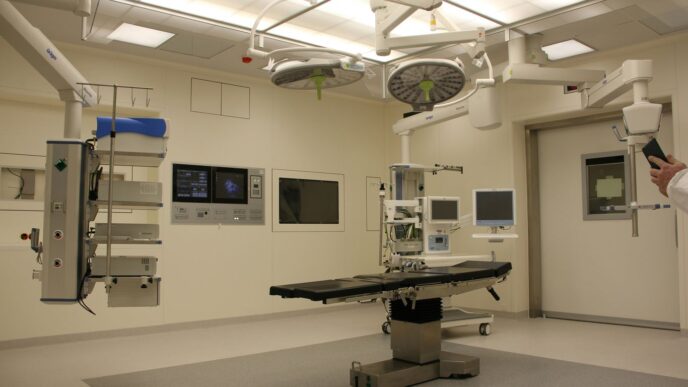So, I’ve been looking into how Quest Diagnostics is changing the game with their molecular oncology work. It’s pretty interesting stuff, really. They’re not just doing tests; they seem to be focused on making cancer care better, especially with all the new technology coming out. It feels like they’re trying to connect the dots between different parts of cancer treatment, from finding out what’s going on to figuring out the best way to tackle it. It’s all about using smart testing to help doctors and patients make better choices.
Key Takeaways
- Quest Diagnostics molecular oncology provides detailed testing for solid tumors to help tailor patient treatments.
- They offer a wide range of tests for blood cancers, including specialized molecular and cytogenetic assays.
- The company focuses on understanding hereditary cancer risks with a full suite of genetic tests and counseling.
- Quest Diagnostics uses advanced science and technology, like next-generation sequencing, for precise cancer profiling.
- Their approach covers the entire cancer journey, from initial screening and diagnosis to treatment selection and monitoring.
Quest Diagnostics Molecular Oncology: Advancing Cancer Care
Cancer treatment is always changing, and it feels like every week there’s something new. At Quest Diagnostics, we’re working with doctors and researchers to try and make things better for patients. It’s about using the latest science to figure out what’s going on with a cancer and then finding the best way to fight it. We know it’s a tough road, but we’re here to help make it a bit clearer.
Comprehensive Solid Tumor Solutions
When it comes to solid tumors, figuring out the right treatment can be tricky. We help doctors by giving them detailed information about the tumor’s genetic makeup. This helps match patients with treatments that are more likely to work, whether it’s a standard therapy or something new in a clinical trial. We have tests that look at a lot of genes at once, which can be really helpful when other options aren’t clear.
Unlocking Blood Cancer Insights
Blood cancers are a different beast, and we have a whole range of tests for them. Whether it’s looking at blood or bone marrow samples, we can do the routine stuff and the more specialized tests. This includes molecular tests, some of which were developed right here at Quest, plus tests for chromosomes and cell types. It’s about giving doctors the full picture so they can make the best decisions for patients with leukemia, lymphoma, and other blood-related cancers.
Understanding Hereditary Risks
Sometimes, cancer risk runs in families. We provide tests that can identify genetic changes that increase a person’s chance of developing certain cancers, like breast, ovarian, or colon cancer. Knowing this information can help people make informed choices about their health, like getting screened more often or taking preventive steps. It’s a way to be proactive about cancer prevention and early detection.
Pioneering Precision Oncology
Precision oncology is all about tailoring cancer treatments to the individual, based on the specific genetic makeup of their tumor. It’s a big shift from the one-size-fits-all approach we used to have. At Quest Diagnostics, we’re really focused on making this happen.
In-Depth Oncology Expertise
We have teams dedicated to oncology, and they know their stuff. They work with both treatments and diagnostics, all with the main goal of making sure patients can get the therapies they need. It’s about connecting the dots between what’s happening in the lab and what’s best for the patient.
Science and Technology in Oncology
Our science folks are right there at the front lines of how precision oncology is changing. They use the newest tech to look closely at tissue samples, immune responses, and even blood samples (liquid biopsies). This detailed look helps us find the right targets for treatment.
Operational Excellence in Diagnostics
Think of our labs – we have a huge network all over the place. We’re always trying to make things more efficient, especially with automation and making sure samples get where they need to go without any mix-ups. It’s a big operation, and we aim to get it right every time.
Regulatory Insight for Oncology
Dealing with regulations can be tricky, especially when you’re trying to get new tests or treatments approved. We have people who are really good at this. They help strategize and talk with regulatory agencies in different countries. This helps move things along so new options can reach patients faster.
Molecular Testing for Enhanced Cancer Care
Figuring out the right path for cancer treatment can feel like a maze, but molecular testing really helps clear things up. It’s all about looking at the tiny details within a tumor or blood sample to see what makes it tick. This kind of testing gives doctors a much clearer picture, moving beyond just what the cancer looks like under a microscope.
Subspecialized Pathology Solutions
Having experts who really know their stuff in pathology makes a big difference. These aren’t just general pathologists; they’re folks who focus on specific areas, like blood cancers or particular types of solid tumors. They can look at bone marrow samples, for instance, and give you a full rundown, not just a basic report. Plus, with things like digital pathology, they can share images and consult with others easily, which speeds things up. It’s like having a team of specialists all looking at your case.
Molecular Testing for Prognosis
Knowing how a cancer might behave in the future is a big deal for patients and doctors. Tests like the Prosigna® Breast Cancer Prognostic Gene Signature Assay or the LeukoVantage® myeloid neoplasm panels help predict how aggressive a cancer might be. This information isn’t about picking a treatment just yet, but more about understanding the likely journey ahead. It helps set expectations and plan for the long term, which is pretty important when you’re dealing with cancer. It’s about getting a sense of the road ahead.
Treatment Selection Through Genomic Profiling
This is where things get really specific. Genomic profiling, often done with next-generation sequencing (NGS), looks at hundreds of genes in a tumor at once. For solid tumors, a test might look at over 500 genes, checking for changes that could be targeted with specific drugs. It can also tell you about things like tumor mutation burden (TMB) and microsatellite instability (MSI), which are clues for how well certain immune therapies might work. This detailed look helps doctors choose treatments that are more likely to be effective for that individual’s cancer, making treatment more precise. It’s a bit like finding the exact key for a very specific lock. For example, understanding these genetic markers can help align patients with clinical trial options that might otherwise be missed.
Advanced Diagnostics Across the Cancer Continuum
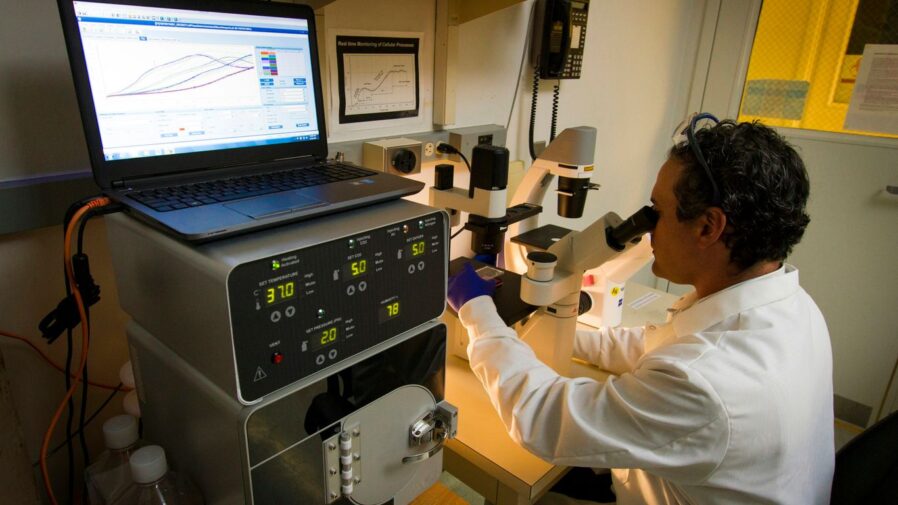
High-Precision Minimal Residual Disease Testing
Figuring out if cancer is truly gone after treatment can be tricky. That’s where minimal residual disease (MRD) testing comes in. It’s all about finding tiny amounts of cancer cells that might still be hanging around, even if they’re too small to see on regular scans. We’ve got tests like Haystack MRD™ for solid tumors, which is pretty neat. For blood cancers, we use a mix of molecular tests and flow cytometry to get a clear picture. These tests help doctors know if the treatment worked really well and if the cancer is likely to stay away.
Solid Tumor Expanded Panel Analysis
When it comes to solid tumors, one size definitely doesn’t fit all. That’s why we do expanded panel analysis. Think of it like getting a detailed map of the tumor’s genetic makeup. We look at over 500 genes, checking for changes in both DNA and RNA. This includes spotting over 50 different gene fusions and copy number variations. Knowing these details can really help in picking the right treatment.
Hematologic Cancer Diagnostics
Diagnosing blood cancers is a complex puzzle. We use a range of advanced pathology solutions to put the pieces together. This includes looking at bone marrow samples with integrated summary reports, using digital pathology for a closer look, and employing next-generation sequencing (NGS) specifically for hematologic cancers. Our subspecialized pathologists bring a lot of know-how to the table, helping to sort out different types of blood cancers and figure out the best way forward for patients.
Targeted Therapy and Clinical Development
Targeted Therapy Profiling
Figuring out the right treatment for cancer is getting more complicated, but in a good way. We’re talking about targeted therapies, which are like precision tools designed to hit specific cancer cells while leaving healthy ones alone. To make sure we pick the best one, we need to know what’s going on inside the tumor. That’s where our extensive molecular panels come in. They look for a bunch of different changes, or mutations, that can be targeted. This detailed look helps doctors create a treatment plan that’s just right for that individual patient. It’s like having a detailed map to guide the treatment journey.
Integrated Drug and Diagnostic Capabilities
Getting a new cancer drug to patients can take a long time, and a big part of that is making sure the right diagnostic test is ready at the same time. We work to make this process smoother. By connecting drug development with diagnostic testing early on, we can cut down on delays and confusion. Our goal is to keep the knowledge and understanding flowing as a drug moves from early research all the way to being available for patients. This means we’re thinking about the diagnostic needs from the very beginning, so when the drug is approved, the test is ready to go.
Clinical Development Insights
When companies are developing new cancer treatments, they need to understand how those treatments work in real people and who might benefit the most. We help by providing insights from clinical studies. This can involve looking at patient groups based on their diagnosis, specific genetic markers, or how they respond to treatment. By analyzing this data, we can help shape better clinical trial designs and identify the patients most likely to respond to a new therapy. It’s about making sure the right treatments get to the right patients as efficiently as possible.
Pathology Expertise and Comprehensive Testing
When it comes to cancer, having the right people looking at the samples is just as important as the tests themselves. We’ve got over 400 pathologists who really know their stuff, covering everything from blood cancers to solid tumors and all the molecular details in between. Think of them as super-specialists for cancer diagnostics.
Our teams are always looking at how we can make things better. They can suggest updates to our tests to make sure we’re always providing the most relevant information for your cancer care needs. It’s like having a regular check-up for our testing services to keep them sharp.
We also help out with the technical side of things. If your lab needs a hand with testing, we can step in. We have CLIA-certified labs ready to go, plus project managers to keep things running smoothly. It’s about making sure you have the support you need, no matter what.
Here’s a look at how our testing covers the whole cancer journey:
- Screening: Catching cancer early with tests for things like prostate and colorectal cancer, plus looking at hereditary risks.
- Diagnosis: Getting a clear picture of what’s going on with detailed pathology and molecular tests.
- Prognosis: Understanding how a cancer might behave using specific tests like MelaNodal Predict™ and the Prosigna® Breast Cancer Prognostic Gene Signature Assay.
- Treatment Selection: Using genomic profiling to find the right targeted therapies.
- Monitoring: Keeping an eye on the cancer’s progress and response to treatment, including high-precision minimal residual disease (MRD) testing that can detect cancer at very low levels, as low as 0.0006%.
Our goal is to provide clear insights for cancer care, from the very first screening test all the way through survivorship. We work with a wide range of tests, from the everyday ones to the really advanced molecular analyses, to give you the information needed for personalized treatment at every stage.
Moving Forward with Precision
So, what does all this mean for cancer care? Basically, Quest Diagnostics is really stepping up with their molecular oncology testing. They’re offering a wide range of tests, from figuring out hereditary risks to pinpointing the best treatments for solid tumors and blood cancers. It’s about getting more specific with how we approach cancer, using all this advanced testing to help doctors make better choices for patients. They seem to have a solid handle on the science and the logistics, which is pretty important when you’re dealing with something as serious as cancer. It feels like they’re trying to make things clearer and more direct for everyone involved, from the lab to the patient’s bedside.

